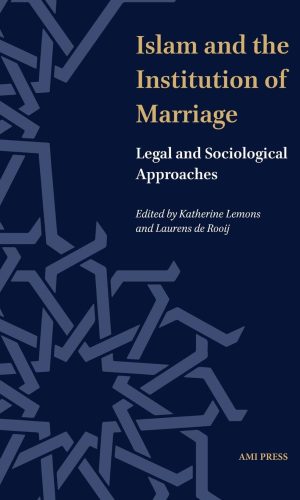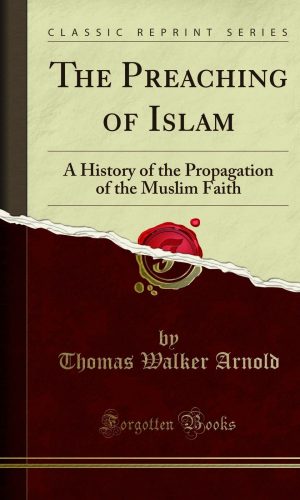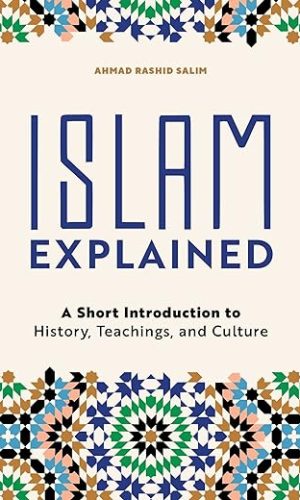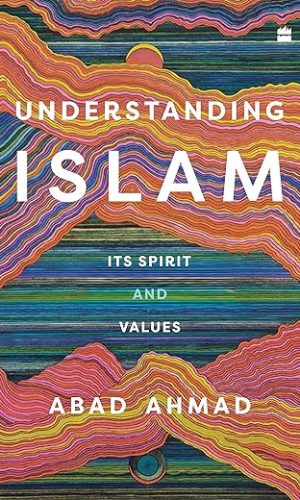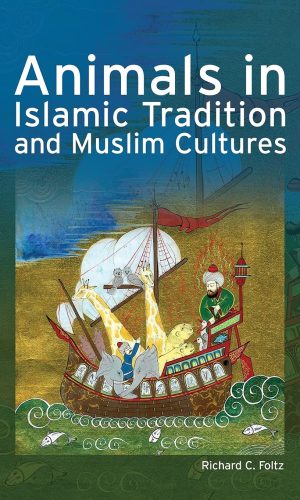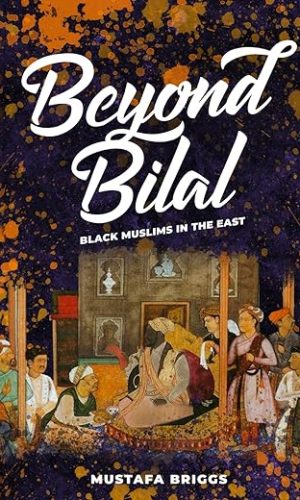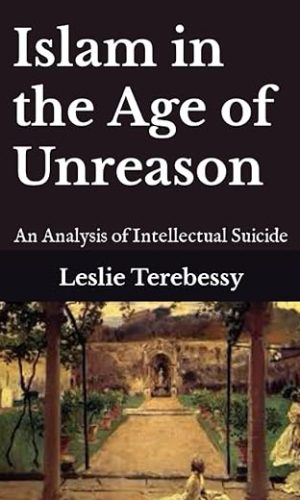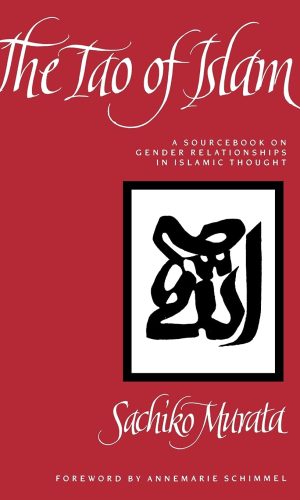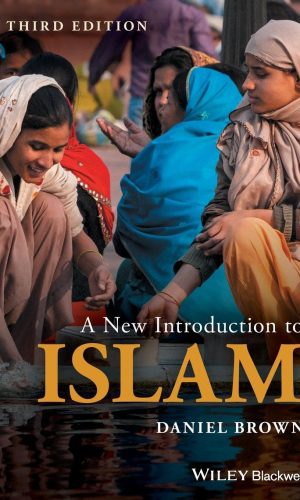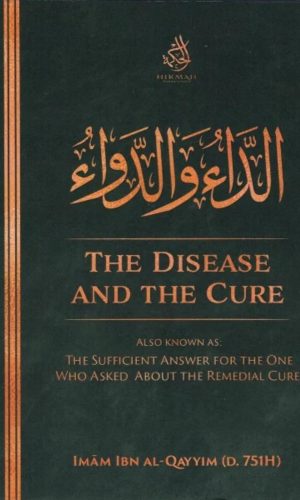Islam
-
Islam and the Institution of Marriage: Legal and Sociological Approaches
Islam and the Institution of Marriage: Legal and Sociological Approaches is a study of Muslim marriage in modernity. The question of marriage and intimate relationships is an important site of internal contestation, as the collection demonstrates. It demands both fidelity to the tradition and its historical modes of thought and relevance to contemporary conditions. The collection of essays that make up the study engages these important and difficult questions from the perspectives of two different types of scholarship: fiqh and social science. While fiqh practitioners work with the source texts to derive new interpretations, to authorise rethinking, and thereby to create spaces of possibility for practices to change, social scientists study practices of Islam. The contributors to this volume examine challenges to fiqh posed by the contemporary by critically analysing the practices and resources available to Muslims in a range of national and historical contexts. These critical approaches will enable a wide readership to understand how Muslims engage with the assumptions and epistemologies that underpin marriage and relationships in contemporary Islamic contexts.Read more
£14.40 -
The Preaching of Islam: A History of the Propagation of the Muslim Faith (Classic Reprint)
Excerpt from The Preaching of Islam: A History of the Propagation of the Muslim FaithIt is with considerable diffidence that I publish these pages: the subject with which they deal is so vast, and I have had to prosecute it under circumstances so disadvantageous, that I can hope but for small measure of success. When I may be better equipped for the task, and after further study has enabled me to fill up the gaps left in the present work, I hope to make it a more worthy contribution to this neglected department of Muhammadan history; and to this end I shall be deeply grateful for the criticisms and corrections of any scholars who may deign to notice the book. To such I would say in the words of St. Augustine: “Qui hsec legens dicit, intelligo quidem quid dictum sit, sed non vere dictum est; asserat ut placet sententiam suam, et redarguat meam, si potest. Quod si cum caritate et veritate fecerit, mihique etiam (si in hac vita maneo) cognoscendum facere curaverit, uberrimum fructum laboris huius mei cepero.”
As I can neither claim to be an authority nor a specialist on any of the periods of history dealt with in this book, and as many of the events referred to therein have become matter for controversy, I have given full references to the sources consulted; and here I have thought it better to err on the side of excess rather than that of defect.
About the Publisher
Forgotten Books publishes hundreds of thousands of rare and classic books. Find more at www.forgottenbooks.com
Read more
£15.80 -
Islam Explained: A Short Introduction to History, Teachings, and Culture
A revealing guide to understanding the principles of IslamWith more than 1.8 billion followers worldwide, Islam is one of the world’s largest religions, but it is also one that is poorly understood by many Americans. Islam Explained offers an informative overview of the faith, helping those who are new to Islam foster cultural awareness while also providing those already familiar with it the opportunity to deepen their understanding.
Whether you are looking to expand your own knowledge of Islam or just better understand the practices of Muslim friends, coworkers, and neighbors, this concise and essential guide provides a solid foundation for future study and conversation.
Islam Explained features:
- Easy-to-understand explanations–This book provides a complete overview ideal for those who are interested in Islam as a faith, a subject of study, and beyond.
- Historical contexts–Better understand the history of Islam, how the religion has evolved, and the ways that history has shaped the lives of Muslims.
- Beliefs and practices–Explore what it means to be a practicing Muslim, including the Five Pillars, laws, dress codes, and brief glimpses into how they vary between individual sects.
Take yourself on a journey that will end in a better, more complete understanding of Islam.
Read more
£17.10 -
Understanding Islam: Its Spirit and Values
“Most of the great religions of the world began with the need to reform individuals and society, especially when there was large-scale moral degeneration. But over time, their essence became obscured by politics and rhetoric, leading to misinterpretation and fundamentalism. Islam is no exception.
Understanding Islam examines the true spirit and essence of the religion based on its original scripture, the Holy Quran, and how far it has moved away from its spirit and values. Using Abdullah Yusuf Ali’s translation, The Meaning of Glorious Quran: Text, Translation and Commentary, as well as Wahiduddin Khan and Farida Khanam’s translation, The Quran, the author discusses the Quranic invalidity of the interpretation of the religion by hardliners and counters prevailing distortions in the interpretation of some of the verses that only serve divisive and extremist agendas. The book also sheds light on simple yet profound questions of right and wrong, divine mercy and wrath, trials and prayer, life and the afterlife.
A moving and deeply spiritual read, Understanding Islam is a must-read to comprehend the true nature of Islam.
”
Read more
£17.10 -
Animals in Islamic Tradition and Muslim Cultures
This is the first comprehensive study of the role of animals in the Islamic tradition. Drawing on a wide range of sources, including classic texts in philosophy, literature and mysticism, Foltz traces the development of Islamic attitudes towards animals over the centuries and confronts some of the key ethical questions facing Muslims today.Read more
£19.00 -
Beyond Bilal: Black Muslims in the East
In Beyond Bilal: Black History in Islam, aside from Black history in the Qur’an and the black companions of the Prophet ﷺ we focused on the History of Islam in West Africa and the role Black Muslims played in the West. In this second volume, based on Mustafa Briggs lectures “Africans in Asia” and “Black History in the Arab World,” we will move eastward and explore the little discussed relationship between Africa and Asia and the Middle East.
We will first look at Black History in the Arabian Peninsula, discovering the history of the legendary black heroes of pre-Islamic Arabia, who were some of the most well known poets, warriors, explorers and conquerors of Arabia. We will then explore the brilliant black intellectuals and revolutionaries who impacted the Islamic Empires of the Middle Ages, including the first Muftis of Makkah, Egypt and Syria, as well as some of the key narrators of hadith and early scholars in the Islamic Tradition.
We will also delve into the spread of Islam in East Africa; from Sudan and Somalia all the way down to the Swahili Coast, and the stories of mighty kingdoms in India, Pakistan, and Bangladesh that were ruled and shaped by East African kings, saints, and adventurers, the communities they developed, and the impact that their legacies have left on the region until the modern day.
Read more
£19.00 -
Islam and the Age of Unreason: An Analysis of Intellectual Suicide
The problem in traditional Islam is that it is “traditional,” grounded in tradition rather than revelation, based on the way Muslims practiced Islam rather than on the way they were expected to practice it. For how Muslims practice Islam was not always the way it was intended to be practiced by Allah. Muslims drifted from the Book of Allah to follow the books of traditions. “When they are told to follow the (Revelation) that Allah has sent down, they say: “Nay, we shall follow the ways that we found our fathers (following). “What! even if it is Satan beckoning them to the Penalty of the (Blazing) Fire.” [1]
There is a chasm between a rule and its practice, between appearance and reality, between the “normative” Islam of the Book of Allah, as Fazlur Rahman put it, and the “historical” Islam of tradition. By treating tradition as “revelation,” traditionists paved the way for tradition to become a “second” revelation (tanzil). The concept of dual revelation paved the way for the emergence of the concept of dual legislation. This is why reformers support the desacralisation of tradition. “The Indonesian reformer Nurcholish Madjid has referred to this phenomenon as the “sacralization” of tradition in Islam and called for a “de-sacralization” of tradition. However, he does not reject the importance of tradition but the notion of a fixed, static tradition, arguing that tradition and consensus or ijma are ongoing and cumulative.” [2] Islam is an Abrahamic faith. The Book of Allah refers to the Jewish prophets as well as Jesus. The Book of Allah presents itself as a reiteration of the previous revelations, known as the Bible. Traditional preachers highlight differences between the Book of Allah and the Tawrat and the Injeel. Thereby they widen the gap between different faiths. These assertions fail to do justice to the universality of Islam. The Book of Allah emphasizes its parallels with the previous revelations. The UAE established the Family of Abrahamic Faiths centre. The Book of Allah does not engage in “Bible bashing,” as a few traditional preachers do, endeavouring to showcase the “superiority” of the Book of Allah in relation to the Bible. The Book of Allah does not “abrogate” the preceding revelations, as exegetes with a penchant for a parochial perspective assert. The Book of Allah reiterates the previous revelations and clarifies misconceptions regarding them. For these revelations were misrepresented. Jesus is treated as greater than a prophet. This is tantamount to attributing a “partner” to Allah, which defies tauhid. The Book of Allah exhorts us to refrain from shirk. Associating “partners” with Allah is the worst transgression. The Book of Allah rejects associating with Allah what He gave no authority for: “Say: the things that my Lord hath indeed forbidden are: shameful deeds, whether open or secret; sins and trespasses against truth or reason; assigning of partners to Allah, for which He hath given no authority; and saying things about Allah of which ye have no knowledge.” [3] “God will not forgive Shirk (choosing ‘authorities’ besides Him), though He may forgive other transgressions according to His law of forgiveness. Whoever commits Shirk, has strayed far, far away.” [4]
“Set up no god or ‘authority’ along with God. I am a plain warner to you from Him.” [5]
[1] Quran, 31:21, trans by A Yusuf Ali: https://www.islamawakened.com/quran/31/st30.htm.
[2] John L. Esposito, “Rethinking Islam and Secularism,” ARDA, Association of Religious Data Archives, p. 17,
http://www.thearda.com/rrh/papers/guidingpapers/Esposito.pdf.
[3] Quran 7:33, trans by A Yusuf Ali: https://corpus.quran.com/translation.jsp?chapter=7&verse=33.
[4] Quran, 4:116, trans by Shabbir Ahmed: http://quranix.org/4#116.
[5] Quran, 51:51, trans by Shabbir Ahmed: http://quranix.org/51#51.Read more
£21.30 -
The Tao of Islam: A Sourcebook on Gender Relationships in Islamic Thought
“This is a genuine foundational work in Islamic studies. It is an open door into the very heart of Islamic civilization, while at the same time it suggests the bases of important comparisons and insights for those interested in cognate areas in Western cultures.“It is a fascinating, truly original work in both its guiding perspectives and its comprehensive, clearly presented account of a central dimension of Islam. There is nothing like it, and it deserves a wide audience.” — James W. Morris, Oberlin College
“It clearly, competently, and comprehensively describes the worldview implicit in the medieval Islamic “wisdom” tradition represented by Sufism and Shi’i philosophy, particularly the way that gender concepts are implicit in their cosmology and psychology, and can be related to the Taoist concepts of yin and yang. The author’s critique of feminism and modern reformism on this basis is penetrating.” — Valerie Hoffman-Ladd, University of Illinois
The Tao of Islam is a rich and diverse anthology of Islamic teachings on the nature of the relationships between God and the world, the world and the human being, and the human being and God. Focusing on gender symbolism, Sachiko Murata shows that Muslim authors frequently analyze the divine reality and its connections with the cosmic and human domains with a view toward a complementarity or polarity of principles that is analogous to the Chinese idea of yin/yang.
Murata believes that the unity of Islamic thought is found, not so much in the ideas discussed, as in the types of relationships that are set up among realities. She pays particular attention to the views of various figures commonly known as “Sufis” and “philosophers,” since they approach these topics with a flexibility and subtlety not found in other schools of thought. She translates several hundred pages, most for the first time, from more than thirty important Muslims including the Ikhwan al-Safa’, Avicenna, and Ibn al-‘Arabi.
Read more
£24.30£28.70 -
A New Introduction to Islam, 3rd Edition
Covering the origins, key features, and legacy of the Islamic tradition, the third edition of A New Introduction to Islam includes new material on Islam in the 21st century and discussions of the impact of historical ideas, literature, and movements on contemporary trends.
- Includes updated and rewritten chapters on the Qur’an and hadith literature that covers important new academic research
- Compares the practice of Islam in different Islamic countries, as well as acknowledging the differences within Islam as practiced in Europe
- Features study questions for each chapter and more illustrative material, charts, and excerpts from primary sources
Read more
£26.60 -
The Disease And The Cure
This book was a response to a question posed by an individual who was afflicted by a calamity, finding himself in a dire and needy state. He Acknowledged to himself that if he failed to rid himself of this ailment it would destroy him in this life and the next.Read more
£33.20The Disease And The Cure
£33.20

